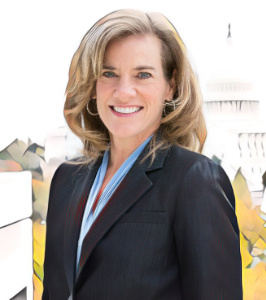Elections and polls offer hope for faith freedom supporters
Midterm election results and recent surveys show us that extremist views aren’t as popular as we might think.

One conclusion drawn from the recent midterm election results is that voters rejected extremism, at least in many parts of the country. Candidates who favored the most severe restrictions on abortion access and those who continued to deny the validity of the 2020 presidential election tended to lose — decisively. Candidates who ran campaigns espousing the worst rhetoric of Christian nationalism were defeated in most cases.
But that isn’t the whole story, as Amanda and I discussed on recent episodes of the Respecting Religion podcast. Regional differences and various factors impacted the outcomes in specific elections. Results are still coming in as I’m writing this column, and it takes time to analyze the campaigns and review voting data to determine why voters made the choices they made. Regardless of the lessons learned for governing and for planning future campaigns, we know Christian nationalism isn’t going away.
Still, I am hopeful that despite its real effect on our politics, polarization appears to have its limits as a political strategy. Part of my hope comes from experience working as an attorney for faith freedom for all for the past two decades. I’ve seen many attempts to skew public opinion with exaggerated claims and misinformation about the meaning and implications of separating church and state. I’ve also seen BJC’s advocacy, grounded in the historic Baptist tradition of religious freedom, play an essential role in coalition efforts that bring people together, despite deep differences.
My hope is also grounded in two recent public opinion polls that showed there is a broad American consensus in favor of faith freedom for all.
Most Americans (83%) oppose the idea of Supreme Court justices bringing their own religious views into how they decide major cases, according to a Pew Research Center survey. Even two-thirds of white evangelical Protestants, the group most open to the idea, say justices should not do this. 65% of Americans disagree with the idea that the government should favor Christianity over other religions, and 58% of Americans think the government should enforce the separation of church and state, according to FiveThirtyEight. Two-thirds of Americans reject the idea that God has called conservative Christians to control politics and culture, according to the same poll.
These polls suggest a more positive and complex picture than is often reported. Of course, BJC will continue to work to ensure that more Americans embrace faith freedom for all. In the meantime, I’m heartened by this evidence that our values are shared by most Americans.
The survey data also shows how much work we have left to do. A plurality (44%) of Americans say Supreme Court justices have relied too much on their own religious beliefs in recent decisions, according to Pew. Religious minorities are the most concerned: 70% of Jews, 90% of atheists, and 82% of agnostics share this concern. BJC’s work at the Court to defend faith freedom for all remains vitally important. Decisions that reverse long-standing precedents and those that ignore guiding principles that have protected religious liberty inevitably cause concern that justices are relying on their own personal religious beliefs instead of performing their constitutional duties. Moreover, their decisions can distort how the public understands the proper relationship between the institutions of government and religion.
Another concerning survey discovery is that a majority (56%) of Americans believe far-right Christians are trying to impose their beliefs on other people, according to the FiveThirtyEight poll. BJC will continue to press our elected leaders to uphold faith freedom for all. We will continue to explain that people of all faiths and no faith have the right and responsibility to engage constructively in the public square, and that religious differences should be respected. When most Americans believe a group of Christians are trying to impose their beliefs on everyone, our mission as a Baptist organization in support of religious freedom for all becomes even more important.
In these polarizing political times, the most extreme candidates and views on church-state separation often get the most attention. But the midterm election results and these surveys show us that extremist views aren’t as popular as we might think. Most Americans value faith freedom for all, and it’s up to us to confront Christian nationalism and ensure extremist ideologies don’t gain further ground.
Holly Hollman is general counsel of BJC.
This column first appeared in the winter 2022 edition of Report from the Capital. You can download it as a PDF or read a digital flip-through edition.




